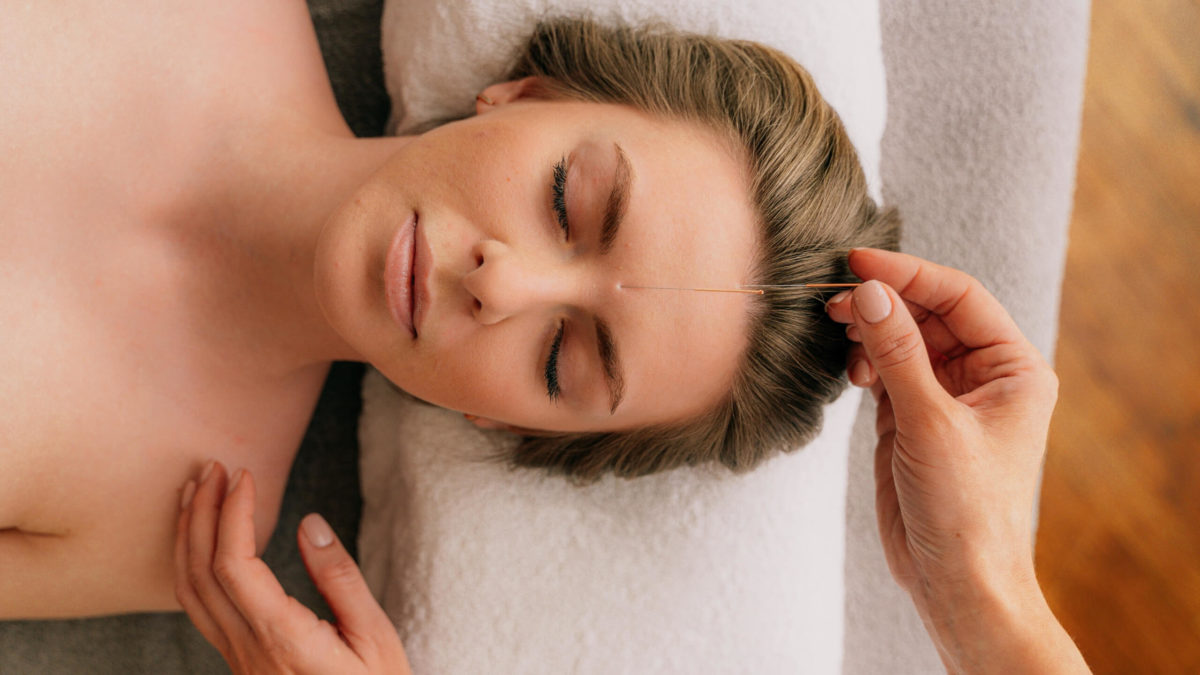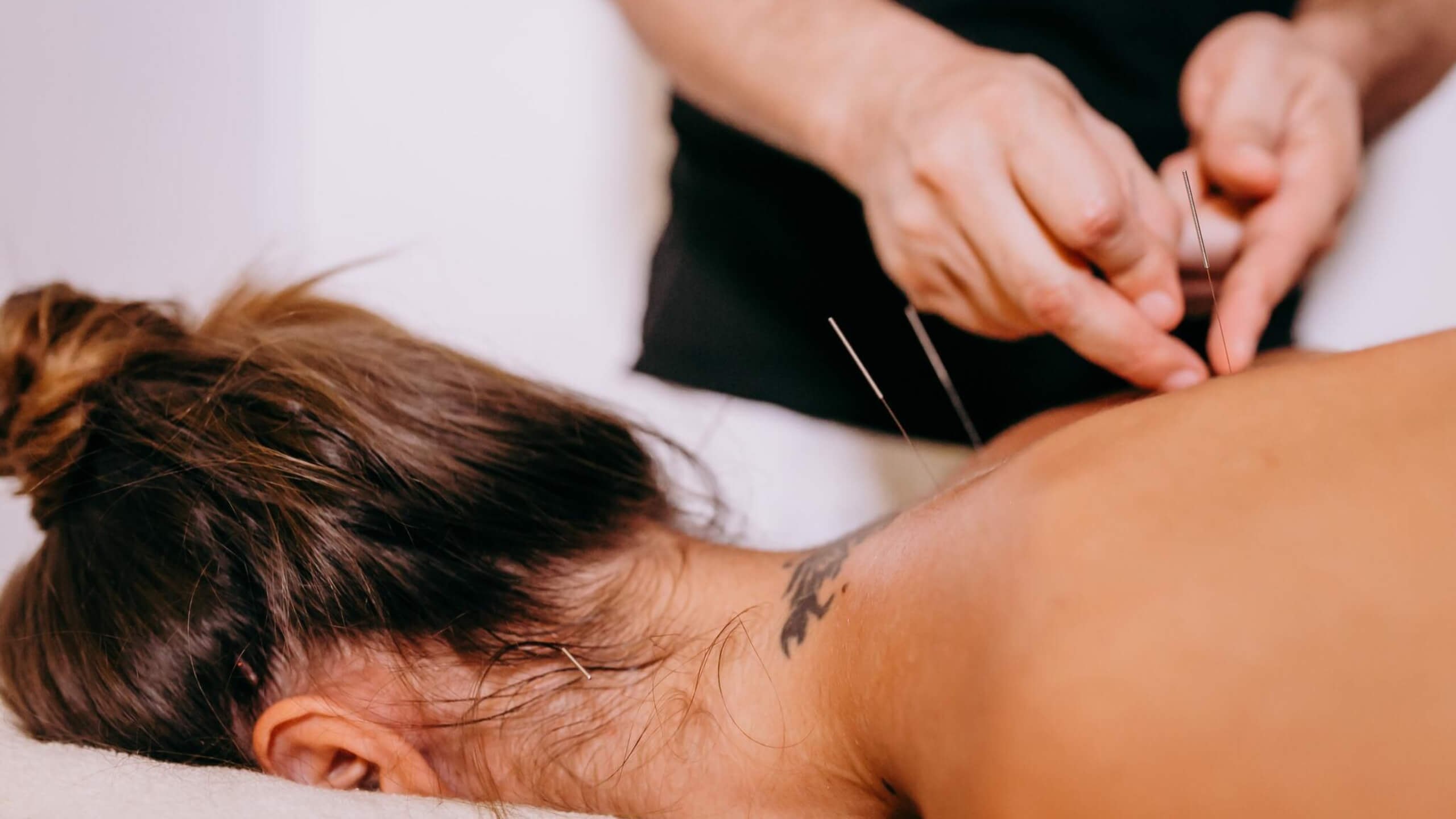Nearly 3,000 years ago, acupuncture emerged from Traditional Chinese Medicine along with a holistic mentality focused on massage, herbs, and healthy eating.
In 1997, a report from a Consensus Development Conference on Acupuncture was released, deeming the practice effective and widely accepted by thousands of physicians, dentists, acupuncturists, and other practitioners. That’s when acupuncture rose in popularity in the West.
We spoke with Derby Ho, a licensed board-certified acupuncturist based in Los Angeles, to learn the origins of acupuncture, why it’s become widely accepted in the U.S., and the health and self-care benefits it can provide.
What is acupuncture?
Acupuncture is a subset of Chinese medicine that involves inserting solid thin needles into specific points throughout the body. This healing process can relieve physical pain, stimulate energy, and treat overall wellness.
The needles are placed deeply, efficiently, and precisely into certain parts of the body, depending on the patient’s pain and what they’re hoping to achieve through the process. According to the World Health Organization (WHO), there are about 361 acupoints.
“An acupuncture point is considered to be a location where we can fine-tune what we call a “qi” (pronounced chee) — that life source that animates us,” Ho said. “We can think of wellness as to how well that qi is flowing throughout the body.”
How can acupuncture help?
Common issues that acupuncture may help with include:
- Boosting women’s health through hormone stimulation
- Alleviating TMJ jaw tightness
- Healing musculoskeletal injury
- Bettering a mood disorder
- Improving an autoimmune disease
- Easing anxiety and stress
Ho added that when the needles are properly placed with the correct technique, acupuncture can contribute to down-regulating your sympathetic nervous system (aka fight or flight mode) and up-regulating your parasympathetic nervous system (when you feel relaxed and at rest). This allows us to achieve equilibrium through balance and healing.
Eastern vs. Western medicine
| Eastern Medicine | Western Medicine |
|---|---|
| Body is viewed holistically | Body is viewed individually |
| Primarily focuses on prevention | Primarily focuses on treatment |
| Prioritizes natural remedies (e.g., acupuncture, tai chi, Chinese herbal medicine) | Prioritizes medication (e.g., drugs, surgery, radiation) |
One key difference between Eastern and Western medicine is that Eastern culture views the person holistically (think: mind, body, and spirit), while Western culture traditionally scrutinizes the body individually — separate from external stressors. To heal someone effectively, you must take all aspects of their life into account, rather than isolating the physical bodily systems.
“That’s why [in Western medicine], you have specialists — the hand specialist, the foot specialist, the neurologist — and these doctors are so focused on looking at that particular system, area, or region so microscopically that sometimes it’s difficult to step back and look at the person as a whole,” Ho said. “We’re all interconnected, not just the different parts of our body, but then us in our families … communities, societies, and that all impart in our health.”
Eastern medicine also emphasizes prevention tactics by incorporating natural remedies, such as acupuncture, tai chi, Chiqong, or Chinese herbal medicine. These can help people reach inner peace, harmony, and balance. “It’s always about finding homeostasis [and] resolving the conflict between yin and yang,” Ho confirmed.
Western medicine, on the other hand, heavily focuses on treatment and medication. Doctors and specialists use scientific means to analyze the physical body. The result is finding a drug or surgery to fix the problem without necessarily encompassing other factors, such as environmental triggers or mental health. However, doctors in the U.S. are increasingly accepting holistic healing techniques — including acupuncture — as they understand how they can benefit patients.
Take a stab at acupuncture

Don’t get us wrong: Acupuncture isn’t for everyone. Those who bruise, bleed, or faint easily, or have an extreme fear of needles (trypanophobia-diagnosed or not) may not walk away feeling relaxed and rejuvenated.
Acupuncture can also be an emotionally and mentally exhausting process. Ho revealed that it isn’t rare to see tears streaming down her patients’ faces after inserting a needle that hits a particularly triggering point. That said, this form of Chinese medicine offers a range of practical health benefits for the right patients, whether physically healing pain in the body or mentally remedying stress and anxiety.
Ho hopes that her patients hold on to the feelings of release and relaxation as they move through life post-session(s). “My hope is that the acupuncture itself is a way for the body to remember that it can down-regulate,” Ho said.





